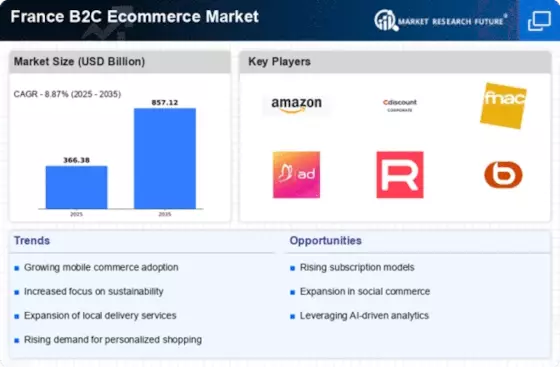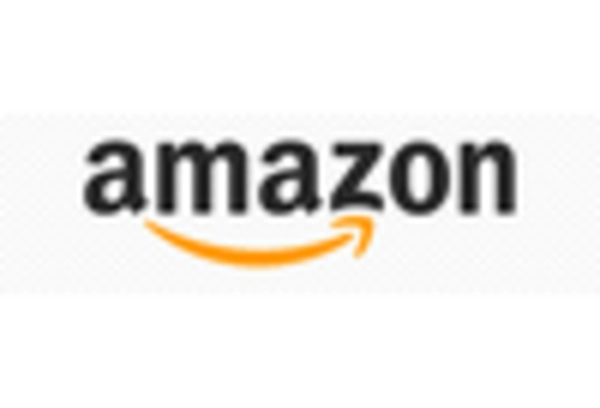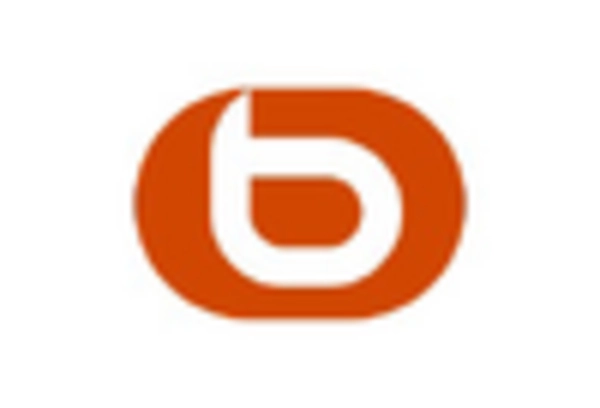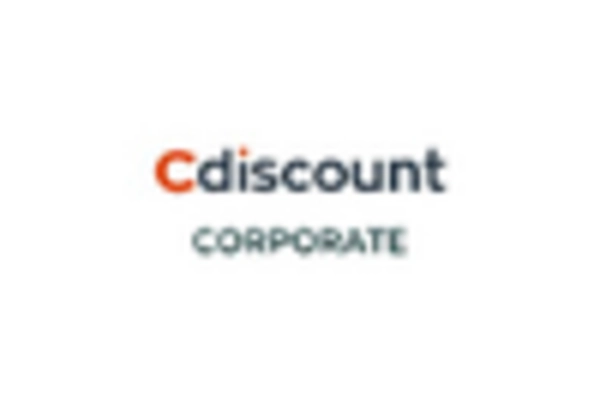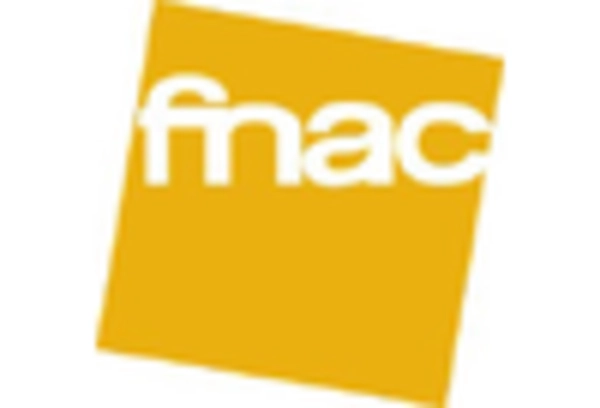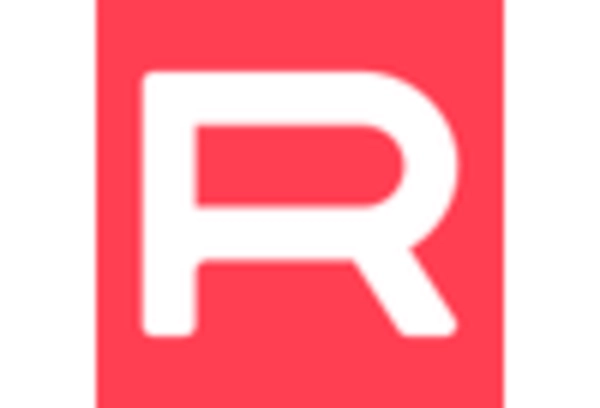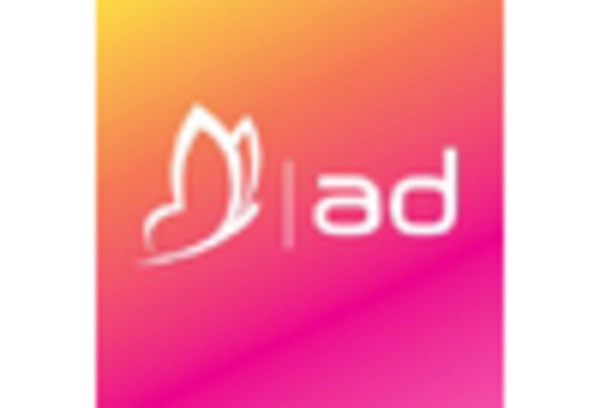Expansion of Payment Options
The France B2C Ecommerce Market is witnessing a significant expansion of payment options, which appears to be a crucial driver for online retail growth. As of January 2026, various payment methods, including digital wallets, bank transfers, and buy-now-pay-later services, are increasingly being adopted by consumers. This diversification in payment solutions caters to a broader audience, enhancing the overall shopping experience. For instance, the popularity of mobile payment applications has surged, with a reported increase of 25 percent in usage over the past year. This trend not only facilitates seamless transactions but also instills confidence in consumers, encouraging them to make purchases online. As payment options continue to evolve, the France B2C Ecommerce Market is likely to benefit from increased consumer trust and higher conversion rates, ultimately driving sales and market growth.
Growing Internet Penetration
The France B2C Ecommerce Market is experiencing a notable surge in internet penetration, which is a critical driver for online shopping. As of January 2026, approximately 93 percent of the French population has access to the internet, facilitating a robust online shopping environment. This widespread connectivity enables consumers to explore a plethora of products and services from the comfort of their homes. Furthermore, the increasing availability of high-speed broadband and mobile internet is likely to enhance the shopping experience, making it more convenient and efficient. The rise in digital literacy among consumers also contributes to this trend, as more individuals become comfortable with online transactions. Consequently, the growing internet penetration is expected to propel the France B2C Ecommerce Market forward, fostering a culture of online shopping that aligns with modern consumer behavior.
Rising Demand for Convenience
The France B2C Ecommerce Market is driven by a rising demand for convenience among consumers, which is reshaping shopping behaviors. As of January 2026, an increasing number of French consumers prefer the ease of online shopping over traditional retail, citing factors such as time savings and accessibility. This shift in consumer preference is evident in the growing popularity of same-day delivery services and click-and-collect options, which cater to the desire for quick and efficient shopping experiences. Retailers are responding to this demand by optimizing their logistics and supply chain operations to ensure timely deliveries. Furthermore, the emphasis on convenience is likely to encourage more businesses to enhance their online platforms, making them user-friendly and efficient. As a result, the rising demand for convenience is expected to play a pivotal role in shaping the future of the France B2C Ecommerce Market.
Regulatory Support for E-commerce
The France B2C Ecommerce Market benefits from a favorable regulatory environment that supports the growth of online retail. The French government has implemented various policies aimed at promoting e-commerce, including tax incentives for digital businesses and streamlined regulations for online transactions. As of January 2026, these initiatives have contributed to a more conducive atmosphere for e-commerce operations, encouraging both domestic and international players to enter the market. Additionally, consumer protection laws ensure that online shoppers feel secure when making purchases, further bolstering confidence in the e-commerce sector. The regulatory framework not only facilitates market entry but also fosters innovation within the France B2C Ecommerce Market, as businesses are encouraged to adopt new technologies and practices that enhance the shopping experience.
Influence of Social Media Marketing
The France B2C Ecommerce Market is significantly influenced by social media marketing, which serves as a powerful tool for reaching potential customers. As of January 2026, approximately 70 percent of French consumers report discovering new products through social media platforms. This trend indicates that brands are increasingly leveraging social media to engage with their audience, promote products, and drive traffic to their online stores. The integration of shoppable posts and targeted advertising on platforms like Instagram and Facebook has proven effective in converting views into sales. Moreover, the rise of influencer marketing has further amplified brand visibility, as influencers often have dedicated followings that trust their recommendations. Consequently, the impact of social media marketing on the France B2C Ecommerce Market is profound, as it not only enhances brand awareness but also fosters a direct connection between consumers and retailers.


